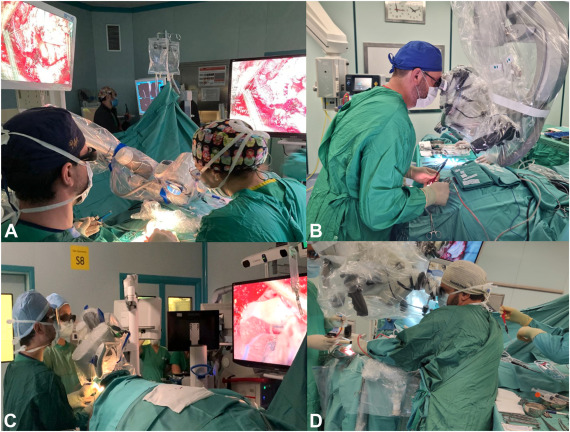
Ethical principles are crucial for guiding surgeons in their practice and decision-making processes. The four fundamental principles of ethics that apply to general surgery include beneficence, nonmaleficence, autonomy, and justice. Each principle plays a significant role in ensuring that surgical practices are conducted ethically and responsibly.
1. Beneficence
Beneficence refers to the ethical obligation to act in the best interest of the patient. In general surgery, this principle emphasizes the importance of providing care that benefits the patient by improving their health outcomes. Surgeons must evaluate the potential benefits of a surgical intervention against its risks and ensure that they are acting to promote the patient’s well-being. This may involve selecting appropriate surgical techniques, considering alternative treatments, and providing comprehensive preoperative and postoperative care.
2. Nonmaleficence
Nonmaleficence is the principle of “do no harm.” Surgeons must take all necessary precautions to avoid causing harm to patients during surgical procedures. This includes minimizing risks associated with surgery through careful planning, informed consent processes, and adherence to established safety protocols. Surgeons should also be aware of potential complications and communicate these risks transparently with patients to ensure they can make informed decisions about their care.
3. Autonomy
Autonomy is centered on respecting a patient’s right to make informed decisions about their own healthcare. In general surgery, this principle underscores the importance of obtaining informed consent before any surgical procedure. Surgeons must provide patients with clear information regarding their diagnosis, treatment options, risks involved, and expected outcomes so that patients can make choices aligned with their values and preferences. Respecting autonomy also involves recognizing when a patient may refuse treatment or seek alternative options.
4. Justice
Justice pertains to fairness in medical treatment and resource allocation. In general surgery, this principle requires surgeons to treat all patients equitably regardless of factors such as socioeconomic status, race, or insurance coverage. Surgeons should advocate for access to necessary surgical interventions for all individuals while also considering broader societal implications related to healthcare resources and disparities.
Conclusion
The integration of these ethical principles—beneficence, nonmaleficence, autonomy, and justice—into general surgical practice is essential for ensuring high-quality patient care while navigating complex moral dilemmas inherent in surgical decision-making.
Demonstrating Professionalism and Empathy to the Patient Undergoing General Surgery
Understanding Professionalism in Surgery
Professionalism in surgery encompasses the conduct, aims, and qualities that define a surgeon’s role. Surgeons are expected to prioritize their patients’ interests above their own, which involves a moral commitment to provide care that is not only technically proficient but also compassionate. This commitment is crucial during all phases of surgical care: pre-operative, intra-operative, and post-operative.
- Pre-Operative Care: Before surgery, it is essential for surgeons to engage with patients effectively. This includes thorough communication about the surgical procedure, potential risks, benefits, and alternatives. Surgeons should actively listen to patients’ concerns and questions to ensure they feel heard and understood.
- Intra-Operative Care: During the surgical procedure itself, professionalism manifests through meticulous attention to detail and respect for the patient’s dignity. The surgical team must work collaboratively while maintaining clear communication with each other and being mindful of the patient’s well-being throughout the operation.
- Post-Operative Care: After surgery, empathy continues to play a vital role in recovery. Surgeons should follow up with patients to assess their recovery process, address any complications or concerns promptly, and provide reassurance about their healing journey.
Empathy as a Core Component of Surgical Practice
Empathy in clinical practice refers to the ability of healthcare providers to understand and share the feelings of their patients. It is an essential component of effective patient care that can significantly impact patient outcomes.
- Emotional Resonance: Surgeons must strive for emotional resonance with their patients by acknowledging their fears and anxieties surrounding surgery. This can be achieved through open dialogue where patients feel comfortable expressing their emotions.
- Co-Authoring the Patient Narrative: It is important for surgeons to recognize that each patient’s experience of illness or injury is unique. By inviting patients into discussions about their treatment plans and respecting their perspectives, surgeons can foster a collaborative environment where patients feel empowered in their healthcare decisions.
- Addressing Psychological Needs: Beyond physical health, surgeons should consider the psychological aspects of undergoing surgery. Understanding that surgery can be an extreme experience for many patients allows surgeons to offer support that addresses both emotional and physical needs.
- Supporting Families: Recognizing that families play a crucial role in a patient’s recovery process is also vital. Surgeons should communicate openly with family members about what they can expect during recovery and how they can best support their loved ones.
- Ethical Considerations: Ethical principles such as autonomy (the right of patients to make informed decisions), beneficence (acting in the best interest of the patient), non-maleficence (doing no harm), and justice (ensuring fair treatment) are fundamental in guiding professional behavior in surgery.
By integrating professionalism with empathy throughout all stages of surgical care, surgeons can create an environment where patients feel valued as individuals rather than just cases or diagnoses.
Medico-legal Issues in Surgical Practice
Surgical practice is governed by a complex interplay of medical ethics, legal standards, and patient rights. Understanding the medico-legal issues involved is crucial for surgeons to provide high-quality care while minimizing the risk of litigation. Below are the key areas of concern:
1. Surgical Ethics
Ethics in surgery encompasses principles that guide surgeons in their professional conduct. The core ethical principles include:
- Autonomy: Respecting the patient’s right to make informed decisions about their own care.
- Non-Maleficence: The obligation to avoid causing harm to patients.
- Justice: Ensuring fairness in medical treatment and resource allocation.
Surgeons must adhere to these ethical standards to maintain trust and integrity within the patient-doctor relationship.
2. Informed Consent
Obtaining informed consent is a fundamental requirement before any surgical procedure. This process involves:
- Providing patients with comprehensive information about the proposed surgery, including risks, benefits, alternatives, and potential outcomes.
- Ensuring that patients understand this information sufficiently to make an informed decision.
There are three recognized legal standards for informed consent: subjective standard (what the specific patient needs to know), reasonable patient standard (what an average patient would need), and reasonable physician standard (what a typical physician would disclose).
3. Peri-operative Care
Peri-operative care refers to the management of patients before, during, and after surgery. Medico-legal issues can arise from inadequate peri-operative care, which may include:
- Failing to monitor vital signs adequately.
- Not addressing complications promptly.
- Poor communication among healthcare providers.
Proper documentation and adherence to protocols are essential for mitigating legal risks associated with peri-operative care.
4. Administration of Anesthesia
The administration of anesthesia carries its own set of medico-legal challenges, including:
- Ensuring informed consent specifically related to anesthesia risks.
- Avoiding overdoses or adverse reactions due to negligence.
- Properly documenting all aspects of anesthesia administration.
Failure in these areas can lead to significant legal repercussions for anesthesiologists and surgeons alike.
5. Medical Negligence
Medical negligence occurs when a surgeon’s performance falls below accepted standards of care, leading to patient harm. Key aspects include:
- Substandard performance: If a surgeon does not meet the competency expected from a reasonably skilled practitioner.
- Omission or commission errors: Actions taken or not taken that result in harm.
Legal frameworks such as the Consumer Protection Act (C.P.A Act) 1986 provide avenues for patients seeking redress against negligent practices.
6. Medical Errors
Medical errors can be classified into two main types:
- Errors of Planning: Mistakes made during preoperative assessments or surgical planning.
- Errors of Execution: Failures occurring during the actual procedure or postoperative care.
Understanding these errors helps in developing strategies for prevention and improving overall surgical outcomes.
7. Retained Foreign Bodies (RFB)
One significant concern in surgical practice is the retention of foreign bodies post-surgery, which can lead to severe complications and legal action against surgeons. Preventive measures include:
- Implementing checklists before closing incisions.
- Conducting thorough counts of instruments and materials used during surgery.
8. Insurance Coverage
Both doctors and patients should have adequate insurance coverage against potential malpractice claims. Surgeons must ensure they are protected by professional liability insurance while also advising patients on their rights regarding coverage for surgical procedures.
9. Legal Frameworks
Surgeons must be familiar with various acts and regulations governing medical practice within their jurisdiction. In India, laws such as the Medical Council Act outline professional conduct expectations and consequences for violations.
In summary, understanding these medico-legal issues is vital for surgeons not only to protect themselves legally but also to ensure they provide safe and effective care that respects patient rights.





